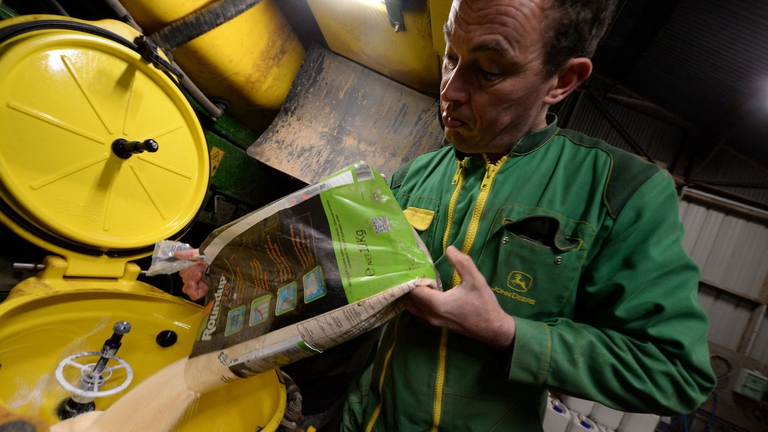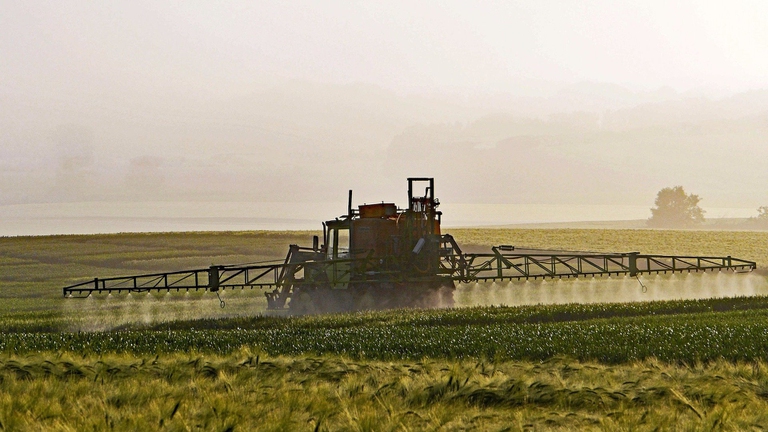https://www.lifegate.it/glifosato-associazioni-governo-italia-autorizzazioni
- |
After a first postponement in October, The November 16 The member countries of the European Union will once again be called upon to express their opinion on the unresolved and divisive issue of glyphosate.The pesticide based on Roundup, produced by German Bayer, remains among the most used globally.And also among the most controversial, since for the IARC (agency headed by the World Health Organization) it is a substance probably carcinogenic;while according to other studies it does not pose health risks.
From ISDE to Legambiente, WWF and AIAB the appeal to the Italian government
The associations environmentalists on the one hand and the industry on the other hand they have been clashing for years and years with scientific analyses, but also with legal actions.In particular in the United States thousands have been initiated, some of which have led to convictions very heavy for the Monsanto (now owned, in fact, by Bayer).
Now in Europe we must decide whether to prefer the path of risk or that of precautionary principle, faced with a molecule on which, at least, there is no certainty regarding safety.Should the first option be preferred, a new authorization for the marketing of glyphosate will be granted.And this time for a very long period, ten years.

To try to convince Italy to side in favor of the precautionary principle, the Isde - Doctors for the Environment association https://www.isde.it/ and other organizations have sent a letter to ministers of Health, the Environment and Agriculture, expressing a “profound worry” in reference to “new scientific evidence regarding the carcinogenic potential of glyphosate”, which “reveals that glyphosate and glyphosate-based herbicides can cause leukemia even at low doses deemed safe by European Union regulators."
A study shows the toxicity of glyphosate, even at low doses
In particular, the document - which was supported by, among others, Legambiente, WWF, Lipu, Federbio, Pesticide action network Italy, Slow Food and Aiab - cites the results presented on 25 October in a international toxicological study promoted by the Italian institution “Ramazzini Institute”.The conclusions of which indicate that, even at low doses, Exposure to glyphosate products “caused cases of leukemia in rats under one year of age, following prenatal and early childhood exposures.”
One of the compounds tested, specifies Pan Europe, “was the representative BioFlow formulation for which the European Food Safety Authority (Efsa) had recently concluded that there were 'no critical areas of concern' – meaning it meets all human safety criteria."

“A long-term toxicity study, which is mandatory, is missing”
The letter refers to the lack of one long-term toxicity study, which the organization indicates is "mandatory, according to article 4, paragraph 5, of EU Regulation 1107/2009 and as highlighted by European Court of Justice (case C-616/17)".Furthermore, “there is crucial evidence on the carcinogenicity of glyphosate which has so far not been recognized in the EU assessment.This includes its potential to cause malignant and other lymphomas tumors in rodent studies, assessed according to European and international guidelines, as well as its ability to induce oxidative stress and DNA lesions in specific organs".
But that's not all:“The carcinogenicity of glyphosate is just the tip of the iceberg regarding the health impacts of glyphosate-based herbicides.Exposure to glyphosate and GBH have been linked to neurotoxicity, disorders of autistic spectrum in children exposed from prenatal age, amyotrophic lateral sclerosis and disease Parkinson in adults.It has also been linked to endocrine disorders and alterations in the microbiome.”
For this reason the associations invite Italy "to push for the non-renewal of glyphosate".However, our government seems to be moving towards a vote in favor of granting the new authorisation.
